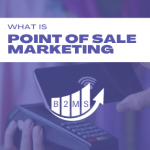Everything you need to know about Ambush Marketing and Advertising
Ambush marketing is a form of advertising that occurs when one company tries to take advantage of the publicity and attention generated by another company’s event or campaign. It can be a very effective strategy, but it can also backfire if not executed correctly. In this blog post, we will discuss what ambush marketing is and give some examples of great campaigns that successfully used this technique!
What is ambush marketing?
Ambush marketing is a form of advertising that seeks to take advantage of the publicity surrounding a major event or campaign. This can be done in a number of ways, but some common tactics include sponsoring events or athletes associated with the event, launching advertising campaigns during the event, or creating media buzz around the event.
While ambush marketing can be a great way to get your brand in front of a large audience, it is important to be aware of the potential risks. In some cases, ambush advertising can create negative associations with your brand if it is perceived as being too pushy or intrusive. It is also important to make sure that your campaign does not conflict with the event organizers’ sponsorships or branding efforts.
Ambush marketing can also play on other campaigns from competitors, for example.
With that said, let’s take a look at some great examples of ambush marketing!

Real-Life Example of Ambush Marketing
One classic example of successful ambush marketing comes from Nike’s “Find Your Greatness” campaign during the 2012 London Olympics. While rival Adidas was an official sponsor of the Games, Nike ran a series of ads featuring everyday athletes from around the world with the tagline “Find Your Greatness.”
This campaign was a huge success and Nike received a lot of positive media attention. However, it also caused some controversy as many people felt that Nike was trying to hijack the Games for its own benefit.
Despite the backlash, there is no doubt that Nike’s campaign was a masterclass in ambush marketing. The company was able to align itself with the Olympics without actually being a sponsor, and it generated a lot of goodwill in the process.
Another great example of ambush marketing comes from Burger King’s “Whopper Detour” campaign.
In 2018, Burger King launched a promotion where customers could get a Whopper for just one cent if they went to a McDonald’s location.
This was a genius move on Burger King’s part, as it not only got people to try its product, but it also got them to visit its rivals’ locations.
Competitor ambush marketing: Audi vs BMW
Audi promoted a billboard with the slogan “Your move, BMW” to promote a new Audi A4 in Santa Monica, California. It was a response to a chess reference in an earlier BMW campaign.
BMW responded with yet another chess reference showing one of their cars on a billboard across the street stating “Checkmate.”. The tail wasn’t over and Audi shot back with a new shiny billboard saying “Your pawn is no match for our king.” showing the Audi R8.
What can we learn from this campaign? Ambush marketing is often a reaction to a competitor’s campaign. Billboards aside, those brand “wars” happen online quite often.

Ambush marketing in sports
Ambush marketing is common in the sports marketing world. Big sports events have many eye-balls on them and usually great media coverage. Brands often promote products related to these events and feature (related) athletes and influencers.
With very high sponsorship fees and sometimes little or hard-to-measure success from those sponsorship campaigns, brands “hijack” the sports events to run ambush marketing campaigns.
Why is ambush marketing controversial?
Ambush marketing is controversial because it goes against the rules and regulations set by the event’s organizers. These rules are put in place to protect the official sponsors of the event from being overshadowed by other brands.
Brands use hints of an event rather than the official logos or marketing rights to associate themselves with the campaign. For example, active or well-known retired football players are associated with NFL events like the Super Bowl or draft events. Not just athletes but also locations will be used in marketing campaigns. Videos and images during the Olympics or FIFA World Cup commercials are showing the places like Tokyo 2022 or Rio de Janeiro in 2010.
Is ambush marketing legal?
Ambush marketing is a form of marketing that blurs the lines of trademark infringement and intellectual property violations. Often, ambush marketers are very good at not crossing that line. That being said, ambush marketing is still technically illegal in some instances. For example, if an ambush campaign uses copyrighted material without permission, it would be considered copyright infringement.
Disclaimer: This is not legal advice!
Some aspects you should check before launching an ambush marketing campaign are the following but are not limited to:
- rights to use names, logos, or slogans
- use of words like “partner” or “sponsor”
- giveaways like tickets to an event – sometimes those are only valid for entrance to the purchased party
- general trademarks beyond names and logos like buildings associated with the campaign and event.
Direct vs indirect ambush marketing
When a firm attaches itself indirectly to another parent advertising campaign, it is engaged in indirect ambush marketing. The goal of such an indirect attachment is to increase brand recognition; it might utilize images, symbols, or photos to deceive consumers. The key distinction between the two is that indirect marketing isn’t as aggressive as direct ambush marketing, and it doesn’t want to steal the spotlight. Forms of indirect ambush marketing are associative, destructive, and values ambushing.
Ambush marketing vs guerilla marketing
What is the difference between guerilla and ambush marketing activities?
Guerilla marketing is a low-cost marketing strategy that involves using unconventional techniques to get the attention of your target audience.
Ambush marketing is when a brand ambushes an event or another brand to steal their thunder and create awareness for themselves.
An example of guerilla marketing is when public objects are visually modified to create an illusion and association with the brand. Incorporating objects like park benches, zebra walks, or staircases are just some examples. Activities like flash mobs or scavenger hunts are further illustrations.
Predatory ambushing on the other hand is usually more costly and requires more planning and marketing efforts, like setting up a pop-up store next to your new competitors’ location. It also usually includes advertising whereas guerilla marketing wants to achieve a buzz in earned media.

Sascha is a Lifecycle Marketing Consultant with over 8 years of digital marketing experiences in Silicon Valley, the UK, and Germany.
After leading the demand generation for a 100+ million company, he decided to venture out on himself. He’s now helping clients to attract and convert more leads and customers.
His main focus are SEO, paid media & marketing automation – all with the focus to tie marketing campaigns to revenue.
Sascha has been featured in industry publications.



